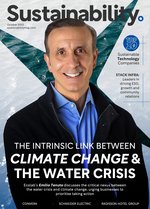Unconscious Bias: A Silent Threat to Workplace Diversity

To one degree or another, we all have preconceived ideas and prejudices against certain social and identity groups. These are often hidden in our unconscious, yet they come out in our speech, actions and behaviours and are formally known as unconscious bias or implicit bias.
As the VP of Diversity, Equity & Inclusion at NTT DATA, Clare Stephens describes these biases as “long-held, subconscious prejudice or stereotypes” that are focused on specific groups of people, often centred on race, gender, age, ethnicity, or other characteristics.
“If left unchecked, these biases can lead to unintended discrimination and unfairness in various aspects of business life: Including hiring, evaluations, and career opportunities,” Stephens says. “Recognising and addressing unconscious bias is crucial to creating inclusive environments and promoting diversity and equity in the workplace.
“Sitting on the leadership team at NTT DATA, part of my role is to examine and identify the systemic effects and causes of unconscious bias. By evaluating the reasoning behind business decisions, we can examine the factors that went into them and learn to what extent unconscious bias may have affected the outcome.”
With Stephens, we explore why unconscious bias needs to be addressed, as well as how it impacts various different aspects of a business.
Unconscious bias: It’s impact on company culture
A Deloitte survey of 3,000 individuals explored unconscious bias in the workplace, finding that 39% of employees shared that they experience it at least once a month, regarding it as “frequent”.
Of these biases, 83% of respondents said that they were subtle, indirect or microaggressions, with 68% reporting they have a negative impact on productivity.
Yet promoting the awareness of unconscious bias in the workplace is vital, as it ensures fair treatment and the diversity and inclusion of employees, while encouraging better decision-making, improved collaboration and reduced conflict. Addressing unconscious bias also aligns with ethical and legal obligations and fosters a harmonious work culture.
“A keen awareness of and willingness to tackle unconscious bias is vital for organisations to create a diverse and inclusive work environment,” says Stephens. “Digging down into all policies, processes and procedures to ensure that we operate within an equitable framework can help to unearth bias. Typically, bias discovered in hiring decisions, performance reviews, and rewards – for example – will stem from unintended and repeated bias. It’s only when we raise awareness of these biases that we can put measures in place to remove them.
“Unconscious biases shape workplace cultures, and, if left to their own devices, can foster an environment where certain groups feel excluded or undervalued. This often leads to decreased employee satisfaction and engagement, resulting in a ‘revolving door’ of talent and stifling the potential for new voices and ideas.”
Reducing unconscious bias in the workplace
Although it is highly unlikely that all unconscious biases can be completely removed, there are numerous ways to reduce them. The first, and arguably the most important step, is to ensure individuals are recognising them.
“Our aim is to change deep-rooted beliefs that, by definition, we are unaware that we hold,” Stephens shares. “This doesn’t happen overnight. Reducing unconscious bias in the workplace requires a thoughtful, proactive, and systematic approach, beginning with awareness.” Training programmes and workshops can be implemented to support this, as they can increase the recognition and understanding of how biases can impact decision-making.
The recruitment process is also an important aspect of cultivating diverse and inclusive workspaces, which are free from unconscious biases. Standardised procedures should be implemented by leaders to ensure all candidates receive fair and equal treatment – starting from the way in which the job description is written.
Supporting this, Stephens shares the need to encourage inclusive hiring practices to ensure that diverse perspectives are included in the decision-making processes. “At NTT DATA, we champion internal Employee Resource Groups,” she comments. “These groups bring together both individuals with shared characteristics or backgrounds and those who may not share these things, but still wish to champion inclusion and foster support and understanding in the workplace.
“We are also proud to support our Women in Business, Neurodiversity, LGBT+, Parents, Culture & Ethnicity, and Health & Wellbeing Networks. We are constantly looking for ways to improve and work across networks to foster inclusion and consider intersectionality across groups. We also partner with external organisations across these groups to ensure that we are benefiting from best practices and taking guidance, both internally and externally, as we look to be an even better employer.”
Two specific types of bias should be understood too – affinity bias, which is when individuals tend to favour others who share similar interests, backgrounds and experiences as they do, and confirmation bias, which is when individuals process information by looking for or interpreting information that is consistent with their existing beliefs. Both of these biases needed to be thoroughly understood by hiring managers, to ensure they don’t impact candidates.
“These are a subject that is close to my heart,” Stephens shares, “and at NTT DATA, we want to promote a recruitment process that is both inclusive and accessible. To reduce biases, we’ve just completed a review of all our job descriptions, considering their language and tone, with the aim of reflecting a more inclusive environment.
“We want to create an environment that encourages people from diverse backgrounds and experiences to apply. This is why we have removed the mandatory degree qualification requirement from all roles without an explicit need for this level of formal education. We have also just obtained the UK Government’s Disability Confident certification as part of our desire to ensure accessibility for all.”







